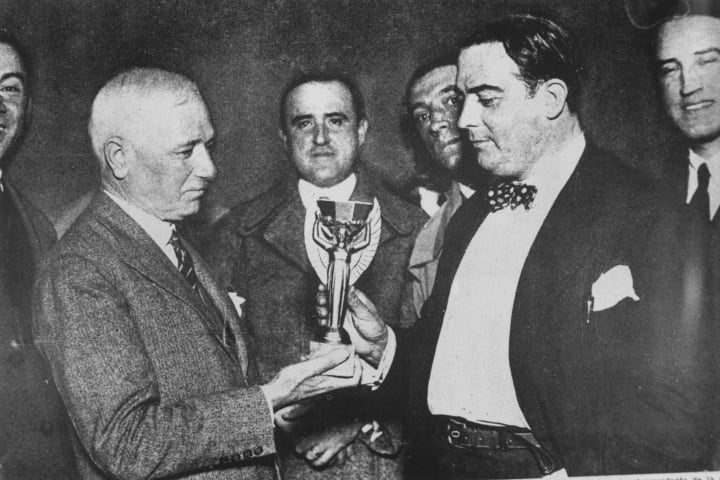The World Cup is the pinnacle of international football, and while the tournament has showcased the greatest of athletic competence over the years, the significance of the event means controversy has never been too far away.
Exploited by regimes as a propaganda tool and courageously utilised by activists to draw attention to greater causes, the World Cup and protests have gone hand in hand over the years.
Here are some of the biggest World Cup protests since the competition’s inception in 1930, ranging from bitter internal disputes to global issues.
World Cup controversy can be tracked as far back to the second iteration of the tournament in 1934 when holders Uruguay opted to boycott the tournament held in Italy.
The champions weren’t best pleased with the lack of European competitors in 1930 and in a tit-for-tat move, they refused to travel to Europe to defend their crown.
They remain the only World Cup winners to not defend their title.
Italian dictator Benito Mussolini had seen ideological companion Adolf Hitler utilise the 1936 Berlin Olympics to great effect so he opted to use the 1938 World Cup in France for similar political means.
Dressed in all-black (a direct representation of Mussolini’s regime) and coached by the militaristic Vittorio Pozzo, the saluting Italians were subject to widespread anti-fascist protests wherever they travelled.
However, the holders defied the hostility to win back-to-back World Cups.
Ohene Djan, the first Ghanaian director of sports & also Vice President of CAF. He led Africa to boycott the 1966 FIFA World Cup. An anti-racism action that change the face of the Tournament forever.
The Accra Sports Stadium is named after him in recognition of his contribution. pic.twitter.com/291prLpc52— GHANA FACTS & HISTORY (@GhanaianMuseum) March 24, 2019
1966 wasn’t all about Bobby Moore and Geoff Hurst, you know. The tournament was also a significant one for Africa as 31 African nations boycotted the tournament.
FIFA ruled in 1964 that the three second-round winners from the African zone in qualifying must enter a play-off round against the winners of the Asian zone in order to qualify for the World Cup, as they felt winning their zone wasn’t enough in itself to merit automatic qualification.
The Confederation of African Football felt unfairly represented and they refused to compete at the World…
Click Here to Read the Full Original Article at 90min EN…

